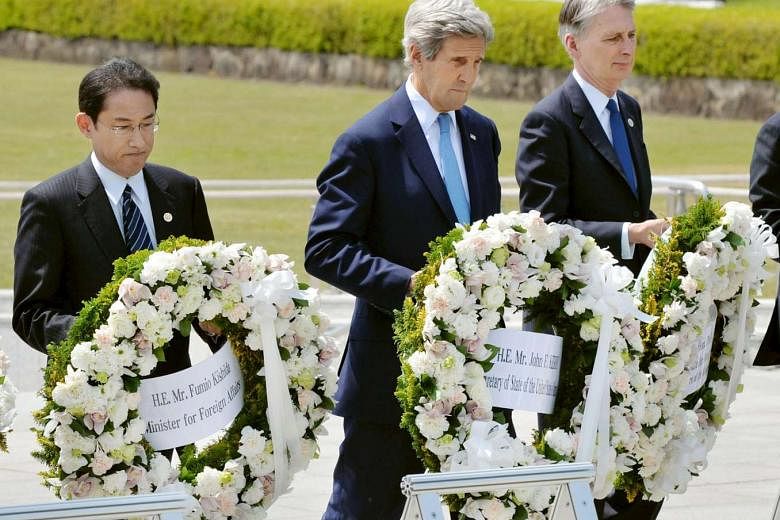HIROSHIMA, JAPAN (REUTERS, AFP) - Foreign ministers from the Group of Seven (G-7) advanced economies said on Monday (April 11) that they strongly opposed provocation in the East and South China Seas, where China is locked in territorial disputes with nations including the Philippines, Vietnam and Japan.
In the latest verbal exchange on who controls the vital trade waterways, China said it had not seen the G-7 statement, but that countries in the region were seeking to promote stability and that disputes were being "exaggerated".
"If the G-7 wants to continue playing a major role in the world, it should take an attitude of seeking truth from the facts to handle the issues the international community is most concerned with at the moment," Chinese Foreign Ministry spokesman Lu Kang told a daily news briefing.
"If the G-7 is taken hostage by the selfish interests of certain countries, then this probably won't be beneficial to the G-7's influence, role and future development."
Earlier on Monday, the G-7 foreign ministers said after meeting in the Japanese city of Hiroshima that they opposed "any intimidating coercive or provocative unilateral actions that could alter the status quo and increase tensions".
In an apparent reference to China's territorial spat with the Philippines, the group also called on countries to observe international maritime laws and implement any binding judgments delivered by courts and tribunals.
Manila has asked the International Court of Arbitration in the Hague to decide on its dispute with Beijing, which has said it does not recognise the case. A ruling is expected by June.
China is building islands on reefs in the South China Sea to bolster its claims. Brunei, Malaysia, the Philippines, Taiwan and Vietnam also have claims on the waters, that are believed to have huge deposits of oil and gas and through which an estimated US$5 trillion in trade is shipped every year.
US Secretary of State John Kerry and the G-7 foreign ministers also called for a "world without nuclear weapons", citing North Korea's sabre-rattling as a key challenge to achieving that goal.
"We reaffirm our commitment to seeking a safer world for all and to creating the conditions for a world without nuclear weapons in a way that promotes international stability," the group said in their Hiroshima Declaration after a landmark visit to the Japanese city's atomic bomb memorial.
"This task is made more complex by the deteriorating security environment in a number of regions, such as Syria and Ukraine, and, in particular by North Korea's repeated provocations," it added.

